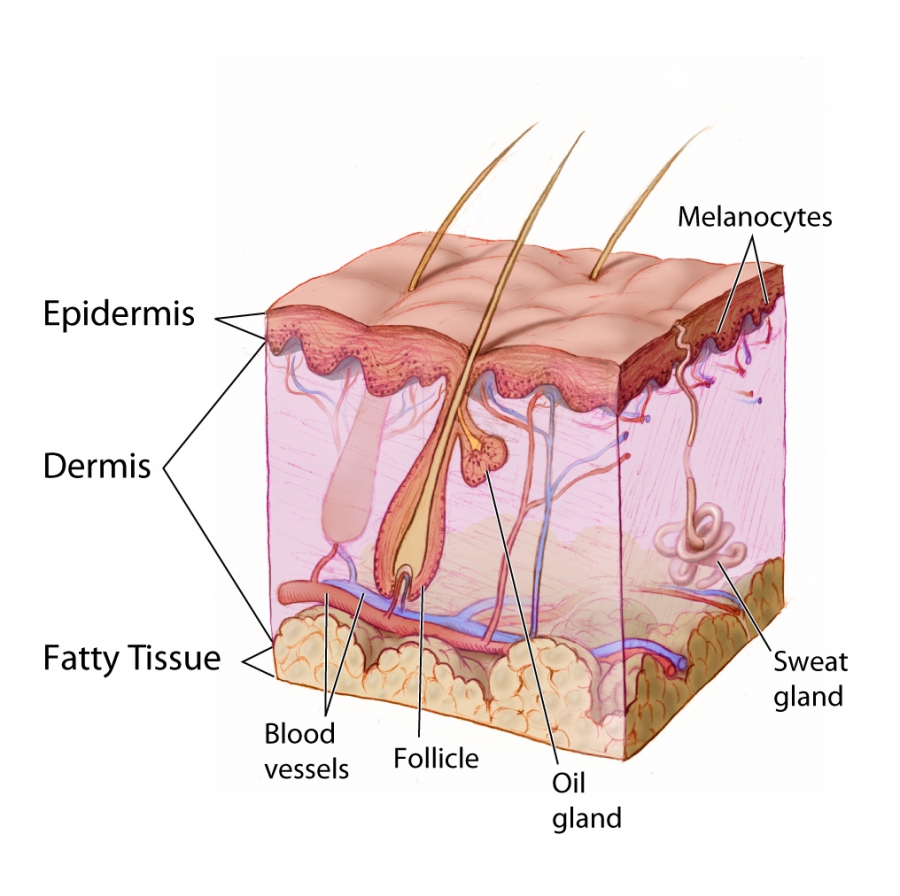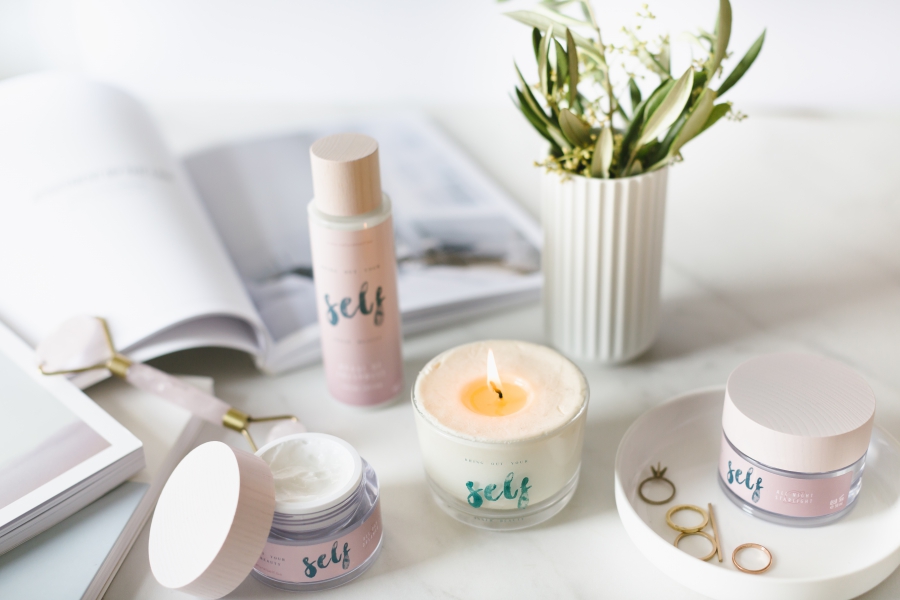Every month we’ll shine our spotlight on a certain skin type. Why? because it’s important to know your skin type! every skin has different needs and requires adjusted care. So in the month of August our blog will feature everything related to a sensitive skin. We can’t all be blessed with a ‘normal and healthy’ skin.. The sensitive skin is often very irritable and has a strong reaction to certain stimuli. Which can be very frustrating! That’s why I’ll tell you all about the layers of the skin, the symptoms and what you can do about it.
A closer look: the layers of the skin
Our skin consists of three layers: the upper skin (epidermis), the dermis and the hypodermic layer. The upper skin is the layer that forms the barrier between our body and the outside world. This layer consists of lipids (fats) that keep our skin flexible and firm. It also keeps all loss of moisture to a minimum. So you can imagine that our skin is crucial to our health, as it protects us from all external influences such as bacteria. This outer layer can say much and more about the condition of your skin and which skin type you have.
(Image: National Cancer Institute)

How does a sensitive skin happen?
A sensitive skin forms when the outer layer of skin gets irritated by internal or external factors. Due to the disruption to the outer layer of skin we’ll lose a lot of moisture and irritations such as bacteria will get in more easily. The skin will have a strong reaction to even the most innocent of factors such as the temperature and UV rays, because of the disruption in the skin barrier.
A sensitive skin can be determined genetically but can also be triggered by certain factors such as the changing of the seasons, because the skin is naturally more sensitive during the Winter months. The use of aggressive cosmetics can also cause an increased sensitivity. Due to the use of these harmful products the skin gets damaged, which leads to the barrier not functioning as it should. Because of the many possible factors it can often be difficult to diagnose the exact cause. But it’s important to try and figure out exactly what the underlying condition to your skin problems is.
Symptoms
But how can you tell if you have a sensitive skin? There are several unpleasant symptoms:
-
Your skin will feel more painful
-
You will notice visible symptoms such as irritations, dry skin and redness.
-
The skin can feel like it’s burning, itchy or flaky.
Redness in the skin combined with irritations can even lead to couperose and eventually Rosacea, a chronic infectious disease resulting in redness to the chin, jaws, forehead and nose.
What can you do about it?
Due to the skin barrier not functioning optimally it’s extra important to care for your skin. A sensitive skin doesn’t have to be a big burden… I can’t say it often enough but you only have one skin and you should care for it as best you can. There are several things you can do to restore your skin.
1. Avoid foaming soaps
We all assume that foaming cleansers like shampoo or soap have a better effect. But that’s actually a wrong assumption! These will only cause the skin to dry out even more and knowing that a sensitive skin is caused by a dry skin, these products are best to be avoided.
2. Test products on the inside of your elbows
It’s important to test a product first, using the inside of your elbows to determine if it shows any signs of an allergic reaction and cause further damage to the outer layer of skin.
3. Use a simple routine without any fuss
Here fuss means having a complicated routine and having to use ten different products without knowing what it is they do. A simple routine is so much better than having to use unnecessary products. Our SELF routine is as simple in the mornings as it is in the evenings.
In the morning and evening I use the Boost of Freshness Facial Lotion, a soft lotion that cleanses the facial area without damaging the skin barrier. Afterwards I’ll use the All Day Dreamer in the mornings and the skin will be protected all day long against external influences.
Twice a week I’ll use the Boost of Oxygen Facial Scrub after applying the facial lotion, a mild scrub suitable for all types of sensitive skin. It’s incredibly important to scrub the skin so any zits or bacteria won’t stand a chance. Afterwards I use the All Night Starlight night cream that restores the skin during the night.

How does SELF help against a sensitive skin?
If you’re suffering from a sensitive skin it’s crucially important that you use natural and mild products. SELF is 100% natural and mild on the skin. Most of the time skin care products leave a layer on your skin, but this is not effective because the skin can’t breathe. A cream has to be absorbed and nurture the skin from within! This is exactly what SELF does: care for the skin from within due to the rich source of vitamins and antioxidants.
SELF contains, among others, vitamin F which is rich in essential fatty acids that maintain the hydration of your skin. The products also contain allantoin and cinnamon acids, that protect the skin against harmful UV rays, and a high concentration of fatty acids that protect the skin against dry and extreme circumstances. Curious to see the full list of our ingredients? You can find it right over here.
A sensitive skin doesn’t have to be a burden. If you know the best way to treat it, it’s the first step in the right directions! Have you got any more questions? Feel free to send us a mail and we’ll get back to you as soon as possible!
Xx Team SELF









